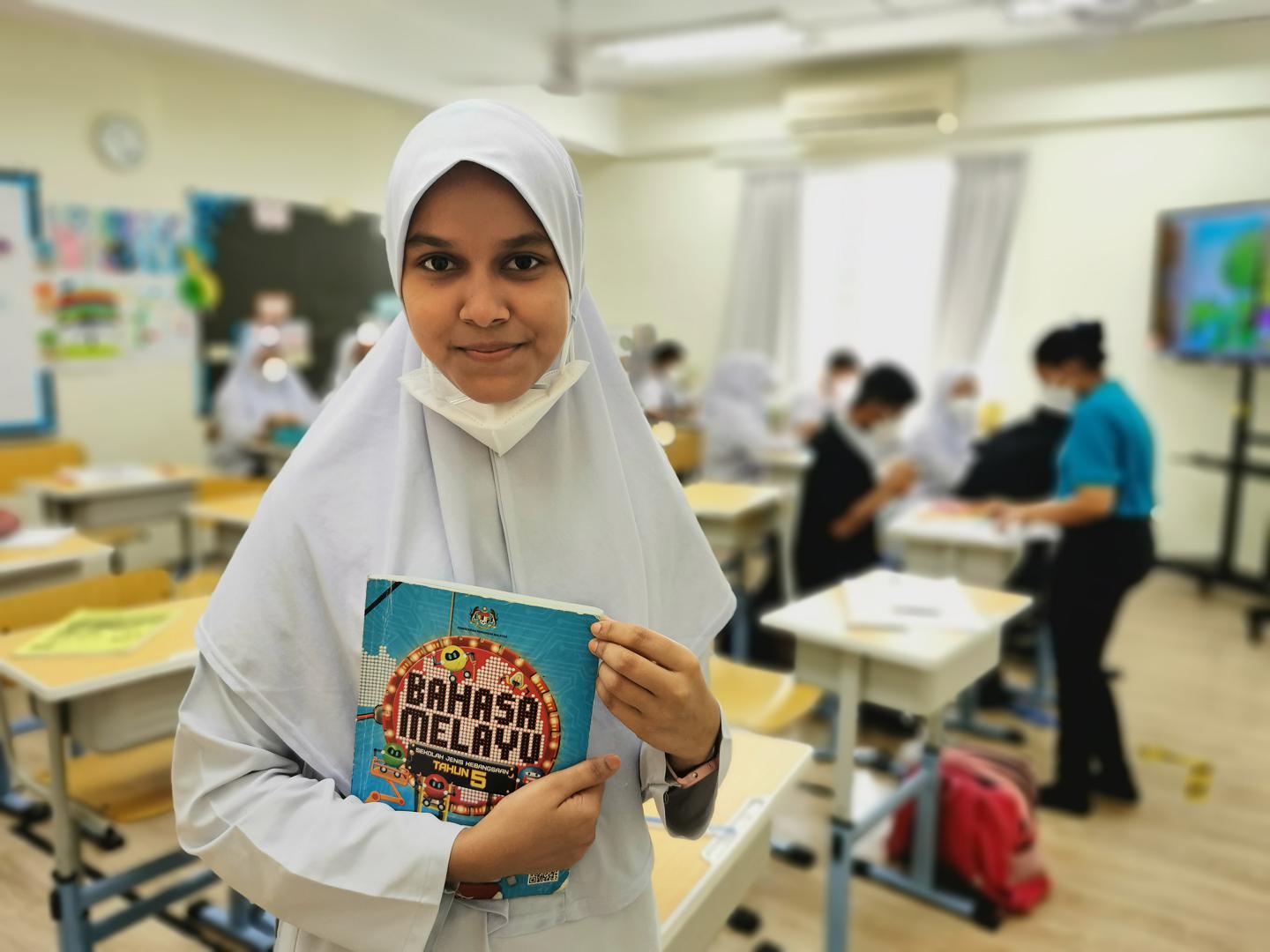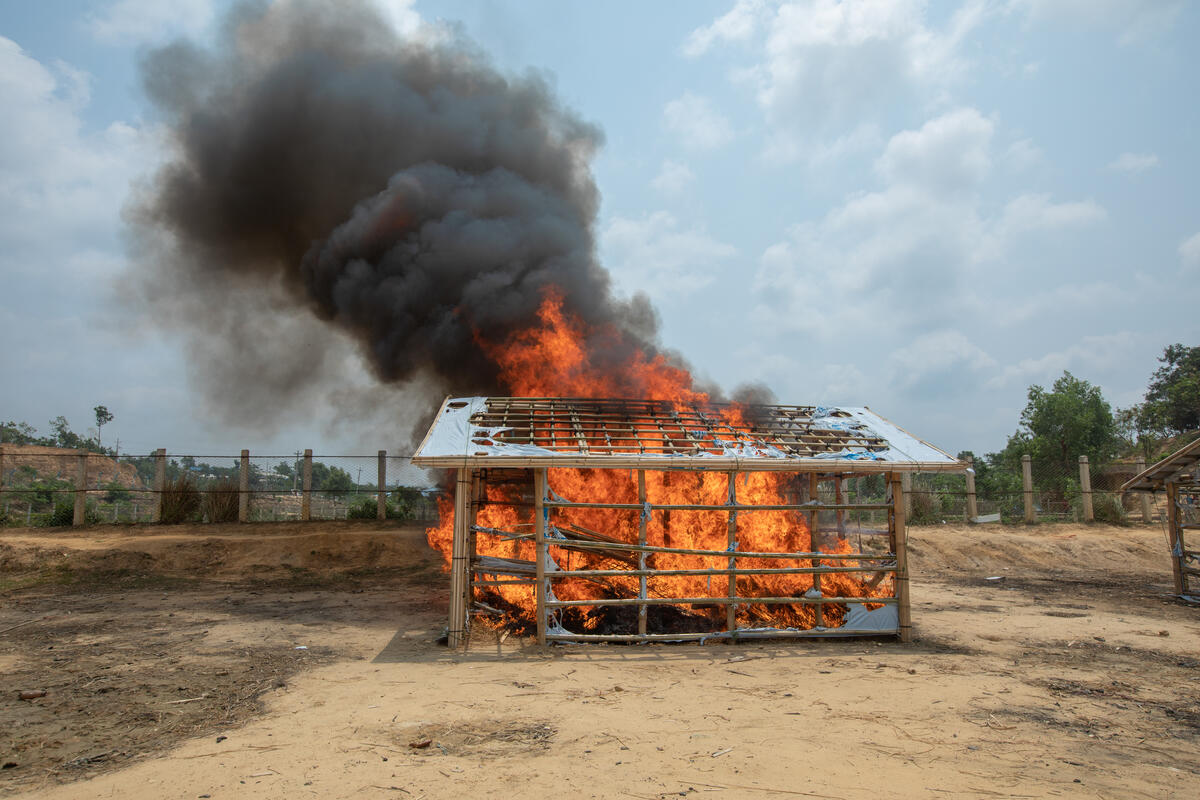Refugee Women In Malaysia Use Traditional Skills To Help Themselves Generate Income

Refugee Women In Malaysia Use Traditional Skills To Help Themselves Generate Income
Refugee women in Malaysia use traditional skills to help themselves generate income.
KUALA LUMPUR, 11 December 2009 - Kyu Manda stands in the middle of a small room, surveying the bustle of activity around her. A group of seven women, all refugees from Myanmar of the Chin ethnic group, are bent over worktables, sewing and kitting a variety of Christmas decorative items.
These refugees are part of a self-help project for refugee women in Malaysia called "Mang Tha", meaning "Sweet Dreams" in the Lai dialect spoken by some of the Myanmar Chin community.
"Right now we are learning how to knit Christmas decorations. The women will take home these materials and finish the items at home," said Kyu Manda, the project coordinator who is a refugee herself.
"We will be selling these items at Christmas bazaars, and 90% of the sales go back to the women."
Mang Tha is run by refugee women to help other refugee women, particularly in the area of income-generation.
There are some 67,800 refugees and asylum-seekers currently registered with the UN Refugee Agency (UNHCR) in Malaysia, mainly from Myanmar. It is difficult for them to work legally due to their unofficial status in the eyes of Malaysian law.
In particular, refugee women who make up nearly 40% of the refugee population, face constraints in venturing out to find work as they are more vulnerable to gender-based harassment and exploitation. For this reason and also due to cultural restrictions, many women stay at home.
Mang Tha was started as a small initiative in 2007 by a group of refugee women to earn income in a safe environment. It has now grown to become a group of over 75 women.
"This is a way for women to be able to earn a living in the safety of their own homes," said Kyu Manda. "Women are taught to sew, knit and embroider. They learn these skills, and then learn how to use the skills to make products that can be sold for an income.
"The women are also taught how to be business savvy and understand how to market their products. It is good for them to learn this for their own future."
The women at Mang Tha create bags, scarves and ornaments all infused with traditional design elements indigenous to their Chin heritage. These items are sold with the help of non-refugee volunteers through bazaars, online distribution and word of mouth.
Kyu Manda said that many Malaysian and foreign volunteers come to help in marketing the products, but the skills of sewing and knitting are contributed by skilled refugee women themselves.
Tlem is a single mother to three teenage children. Fleeing persecution in Myanmar, she brought them to Malaysia over a year ago with barely more than a bag of clothes among them. But Tlem brought with her something far more valuable - her skills as a seamstress.
"I work two times a week at Mang Tha to teach the women how to sew," said Tlem. "I think it is a valuable skill to have. Because of my sewing skills in Myanmar, I could support my family after my husband died. Now I am also able to sew clothes for other refugees to earn extra income."
On average, the women each earn about 500 Ringgit (US$150) a month. The women do not need to work every day, rather they can pick up materials to sew or knit according to their own schedules. They will be paid depending on the number of completed items they return.
"I feel so happy when I see one of my bags sold," said Rita, a refugee woman who has learnt specialised skills in embroidery. "It's important that we are able to support ourselves financially, and if we can avoid leaving the house for work, it's much safer for us."
Kyu Manda observes that Mang Tha has provided refugee women the safe space to learn new skills and interests which can develop into income. But more than that, they become independent, develop self confidence and regain their dignity. She recalls the way the women's faces light up the very first time they are given their hard-earned wages.
"When they can contribute positively to their community, it makes them feel good about themselves," she said. "Many of the women who participated in the project are now leaders who encourage other women to come out of their 'shell'."
Mang Tha has also become a place of comfort and friendship among these women. For Nie Nie, a young Chin woman of barely 25, Mang Tha is an opportunity to be a part of a community of sisters, especially while being away from home as a refugee.
"I enjoy getting together with the other women," said Nie Nie. "Mang Tha is my family. It is important to have the comfort of still being near your community."









